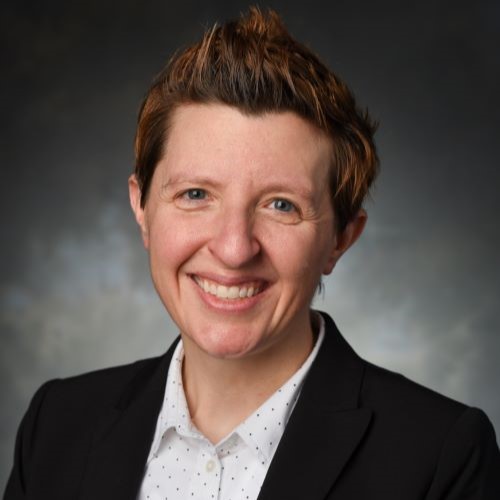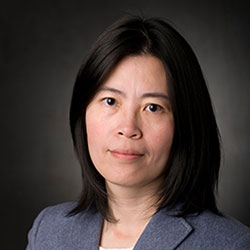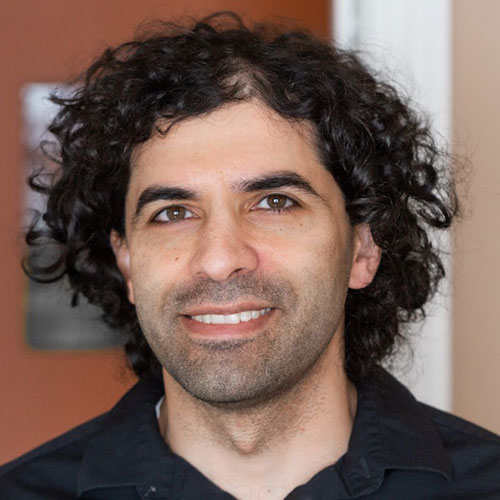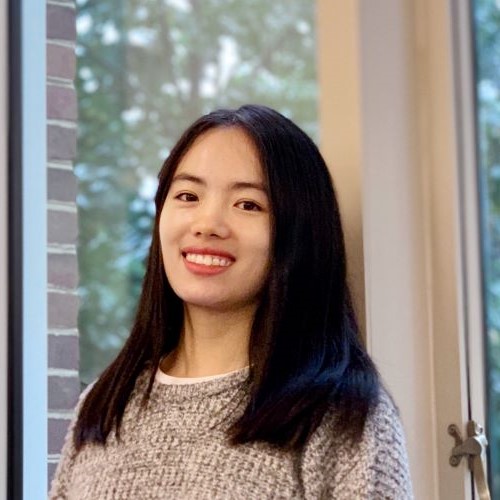Directory

Alan Wagner
- Assistant Professor of Law, Policy, and Engineering and Anthropology
- CSRAI Affiliate
Department/Unit: College of Engineering
Email: alan.r.wagner@psu.edu
Research Interests: My interest is in developing robots that are capable of interacting with a broad range of humans within a variety of different social situations. I try to ideas from cognitive science to develop methods for robot reasoning. Application areas in emergency evacuation, construction robotics, and game playing.

Jennifer Wagner
- Assistant Professor of Law, Policy, and Engineering and Anthropology
- CSRAI Affiliate
Department/Unit: School of Engineering Design and Innovation
Email: jkw131@psu.edu
Research Interests: ELSI (ethical, legal, and social implications) of human genetic/omic and digital health technologies

James Wang
- Distinguished Professor
- CSRAI Affiliate
Department/Unit: College of Information Sciences and Technology
Email: jwang@ist.psu.edu
Research Interests: Affective ComputingBiomedical Imaging InformaticsComputer-based Analysis of Visual ArtMachine LearningComputer Vision

Qian Wang
- Professor
- CSRAI Affiliate
Department/Unit: College of Engineering
Email: quw6@psu.edu
Research Interests: machine learning, advanced manufacturing, type 1 diabetes, modeling of dynamic systems, control systems

Suhang Wang
- Associate Professor
- CSRAI Affiliate
Department/Unit: College of Information Sciences and Technology
Email: szw494@psu.edu
Research Interests: I mainly work on interpretable, robust and fair machine learning and deep learning models with application to social media mining.

Krista Wilkinson
- Distinguished Professor in Communication Sciences and Disorders
- CSRAI Affiliate
Department/Unit: College of Health and Human Development
Email: kmw22@psu.edu
Research Interests: Dr. Wilkinson's scholarship seeks to improve the design of technologies used by individuals with developmental disabilities to support their communication, speech, and language.

Shomir Wilson
- Associate Professor
- CSRAI Steering Committee
Department/Unit: College of Information Sciences and Technology
Email: suw724@psu.edu
Research Interests: Shomir Wilson's research interests span natural language processing, artificial intelligence, digital privacy, and computational social science. He is particularly interested in breaking down technology's "walls of text", situations where a human user or decisionmaker is expected to consume a large quantity of text to take action while lacking time or expertise to properly understand it. Prior to joining Penn State he held postdoctoral positions in Carnegie Mellon University's School of Computer Science and the University of Edinburgh's School of Informatics. He received his Ph.D. and M.S. in Computer Science from the University of Maryland, and his B.S. in Computer Science, B.S. in Mathematics, and B.A. in Philosophy from Virginia Tech.

Alex Winters
- Applications Developer
- CSRAI Affiliate
Department/Unit: Edna Bennett Pierce Prevention Research Center
Email: ajw5296@psu.edu
Research Interests: child welfare, policy cost-benefit analysis, and entrepreneurial communities

Dinghao Wu
- Professor
- CSRAI Affiliate
Department/Unit: College of Information Sciences and Technology
Email: duw12@psu.edu
Research Interests: Cybersecurity, machine learning, software engineering.

Qingyun Wu
- Assistant Professor
- CSRAI Affiliate
Department/Unit: College of Information Sciences and Technology
Email: qxw5138@psu.edu
Research Interests: Large Language Model Agent Systems, Multi-Agent AI Systems, Reinforcement Learning
